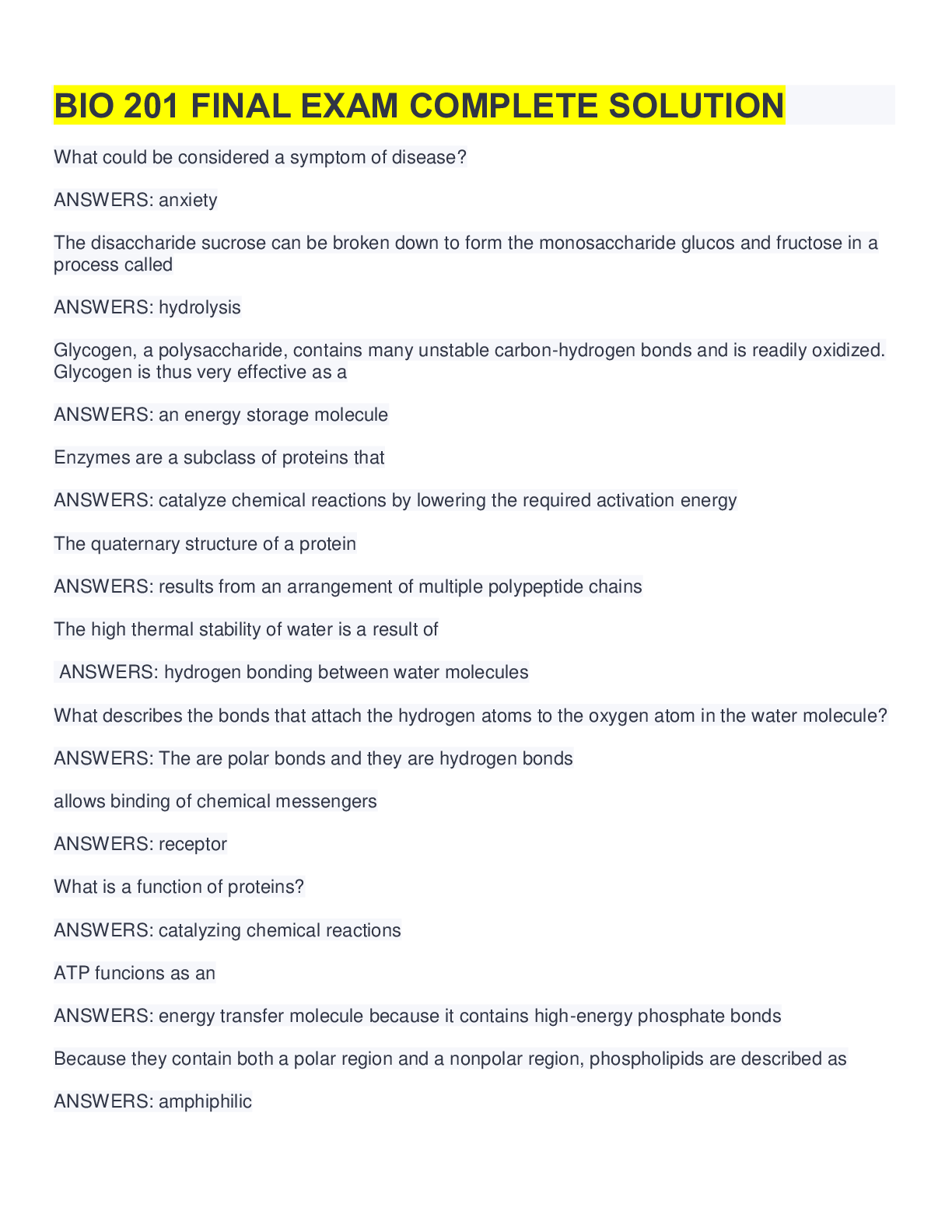*NURSING > QUESTIONS & ANSWERS > MODULE 12: ALTERATIONS OF PULMONARY FUNCTION QUESTIONS AND ANSWERS 2022 (All)
MODULE 12: ALTERATIONS OF PULMONARY FUNCTION QUESTIONS AND ANSWERS 2022
Document Content and Description Below
MODULE 12: ALTERATIONS OF PULMONARY FUNCTION QUESTIONS AND ANSWERS 2022 Chronic bronchitis - ANS-A nurse is caring for a patient who smokes and has a chronic cough. What does the nurse suspect? ... coughing up blood. - ANS-A patient has hemoptysis. What did the nurse observe? The patient is: Eupnea - ANS-A patient's breathing pattern is 12 breaths a minute that are effortless and rhythmic. What term should the nurse use to document this finding? Hypocapnia and respiratory alkalosis Feedback: Hypocapnia from hyperventilation results in a respiratory alkalosis that also can interfere with tissue function. - ANS-A patient is hyperventilating. While checking the laboratory results, which findings will the nurse find? inadequate ventilation of well-perfused areas of the lung. Feedback: Hypoxemia can be caused by inadequate ventilation of well-perfused areas of the lung (low V/Q). - ANS-A primary care provider states that the patient has a low V/Q ratio. What does the nurse interpret this to mean? The patient has: pH is 7.21 Feedback: Respiratory failure is defined as inadequate gas exchange such that PaO2 2 >= 50 mm Hg with pH. - ANS-A patient has acute respiratory failure. Which laboratory result will the nurse observe? Monitoring the chest tube Feedback: Pneumothorax is treated with insertion of a chest tube that is attached to a water-seal drainage system with suction. - ANS-A patient has a pneumothorax. Which action by the nurse is most important for this patient? Exudative Feedback: Pleural effusions that enter the pleural space from intact blood vessels can be transudative (watery) or exudative (high concentrations of white blood cells and plasma proteins). - ANS-A patient has pleural effusion containing white blood cells and plasma proteins. Which term will the nurse use to describe this type of effusion? It takes more effort to expand the lungs during inspiration, increasing the work of breathing. Feedback: Restrictive lung diseases are characterized by decreased compliance of the lung tissue. This means that it takes more effort to expand the lungs during inspiration, which increases the work of breathing. - ANS-A patient has restrictive lung disease. Which principle should the nurse remember while providing care to this patient? CONTINUES... [Show More]
Last updated: 2 years ago
Preview 1 out of 8 pages
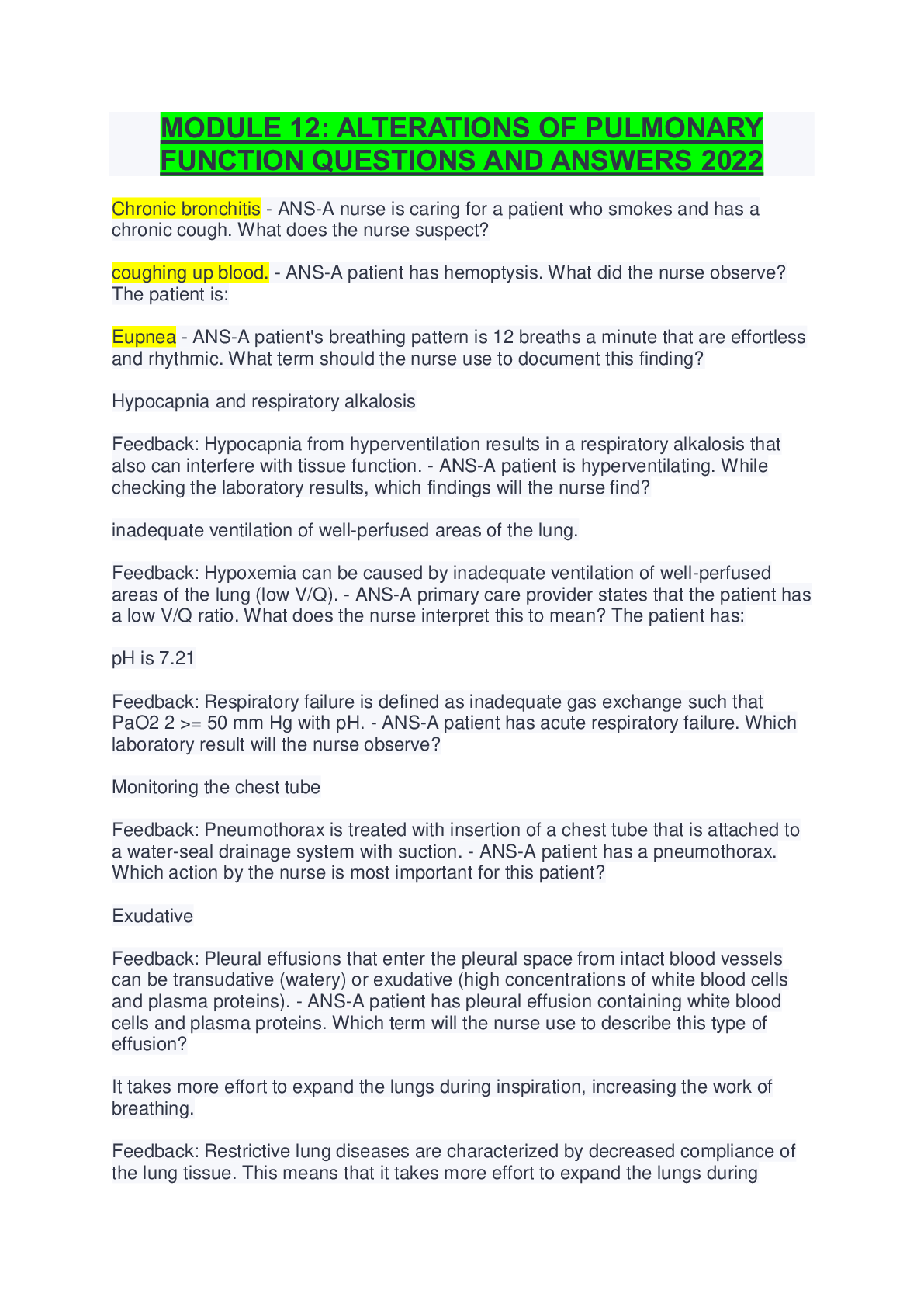
Buy this document to get the full access instantly
Instant Download Access after purchase
Buy NowInstant download
We Accept:

Reviews( 0 )
$7.50
Can't find what you want? Try our AI powered Search
Document information
Connected school, study & course
About the document
Uploaded On
Oct 12, 2022
Number of pages
8
Written in
Additional information
This document has been written for:
Uploaded
Oct 12, 2022
Downloads
0
Views
46

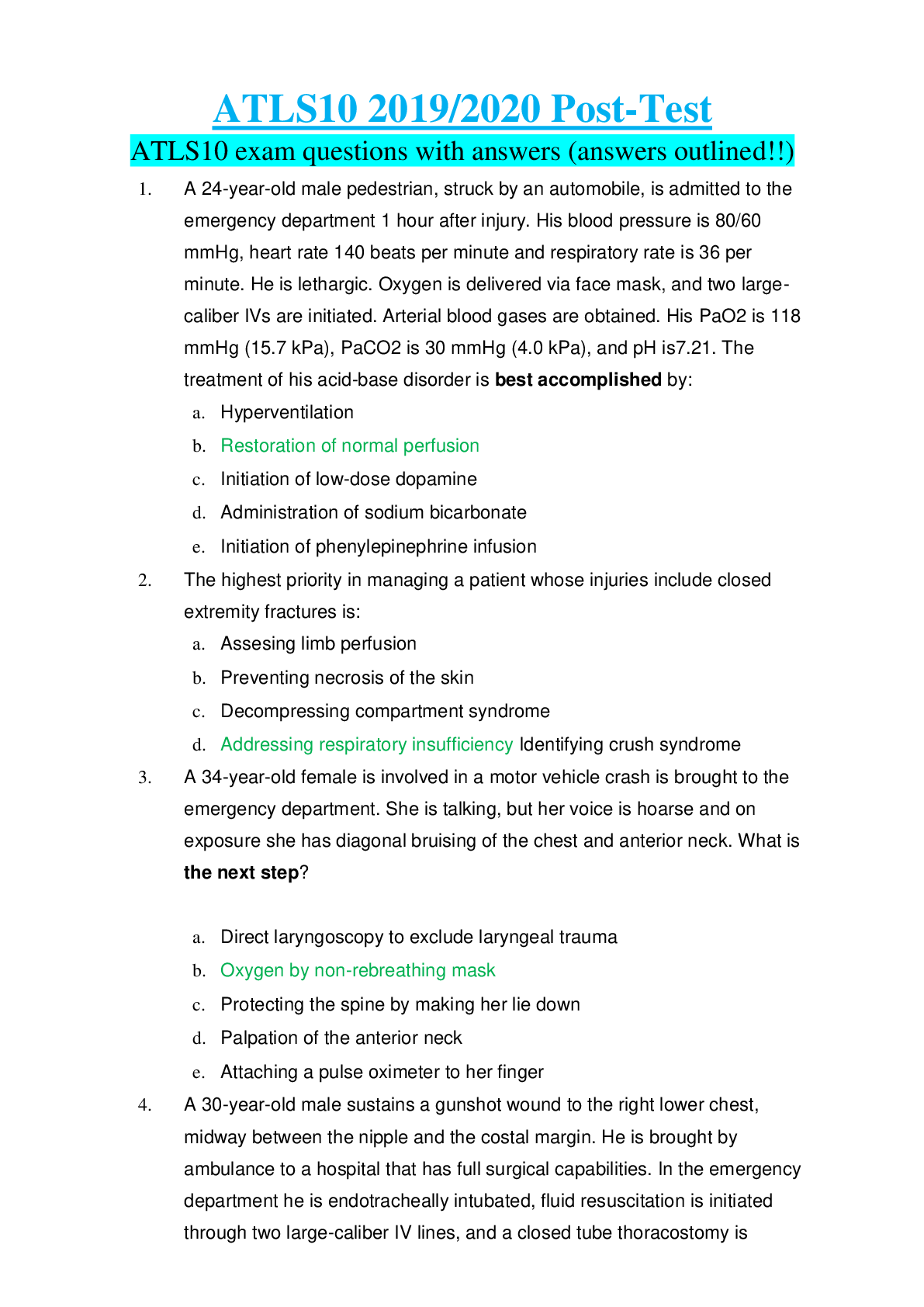



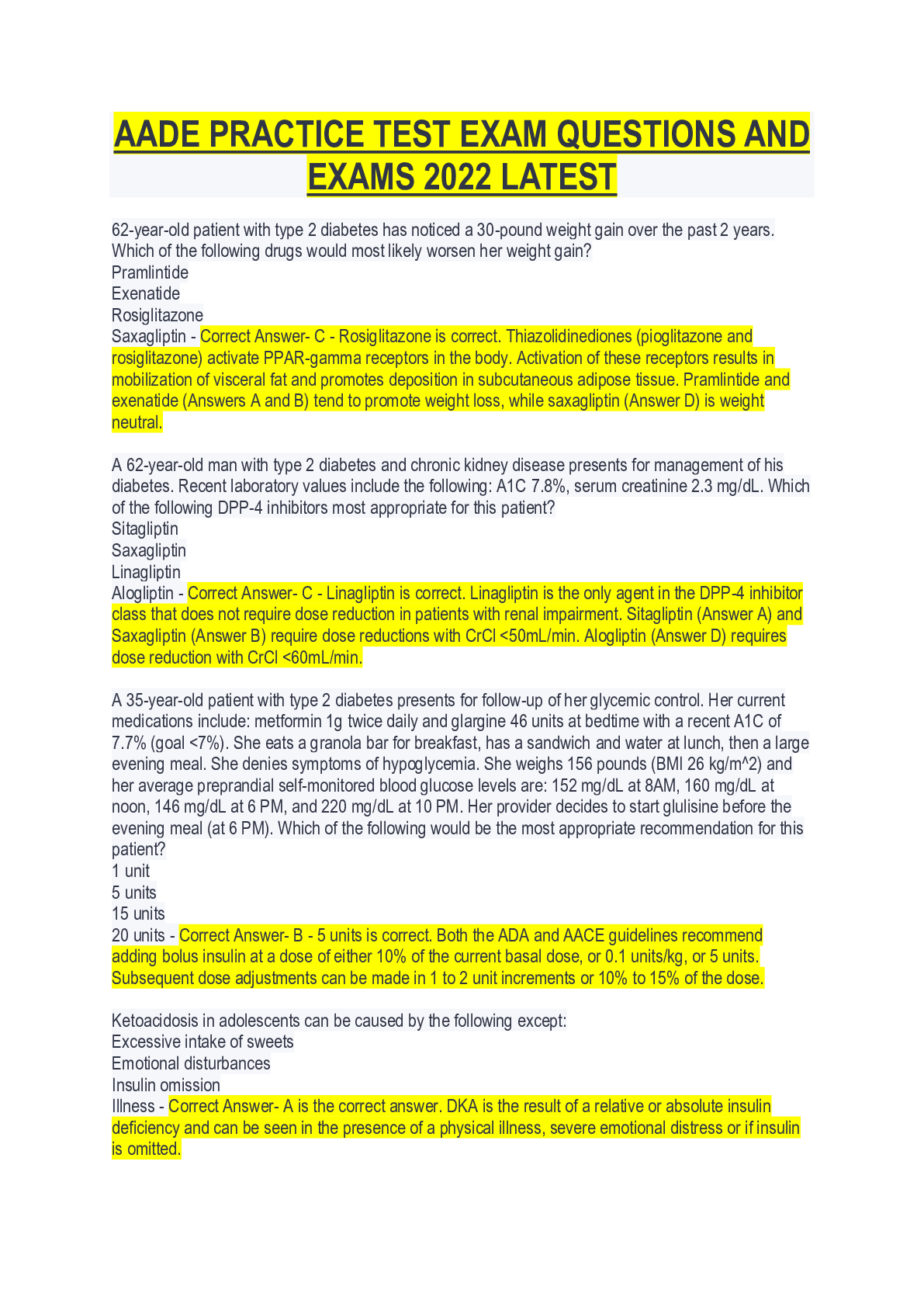



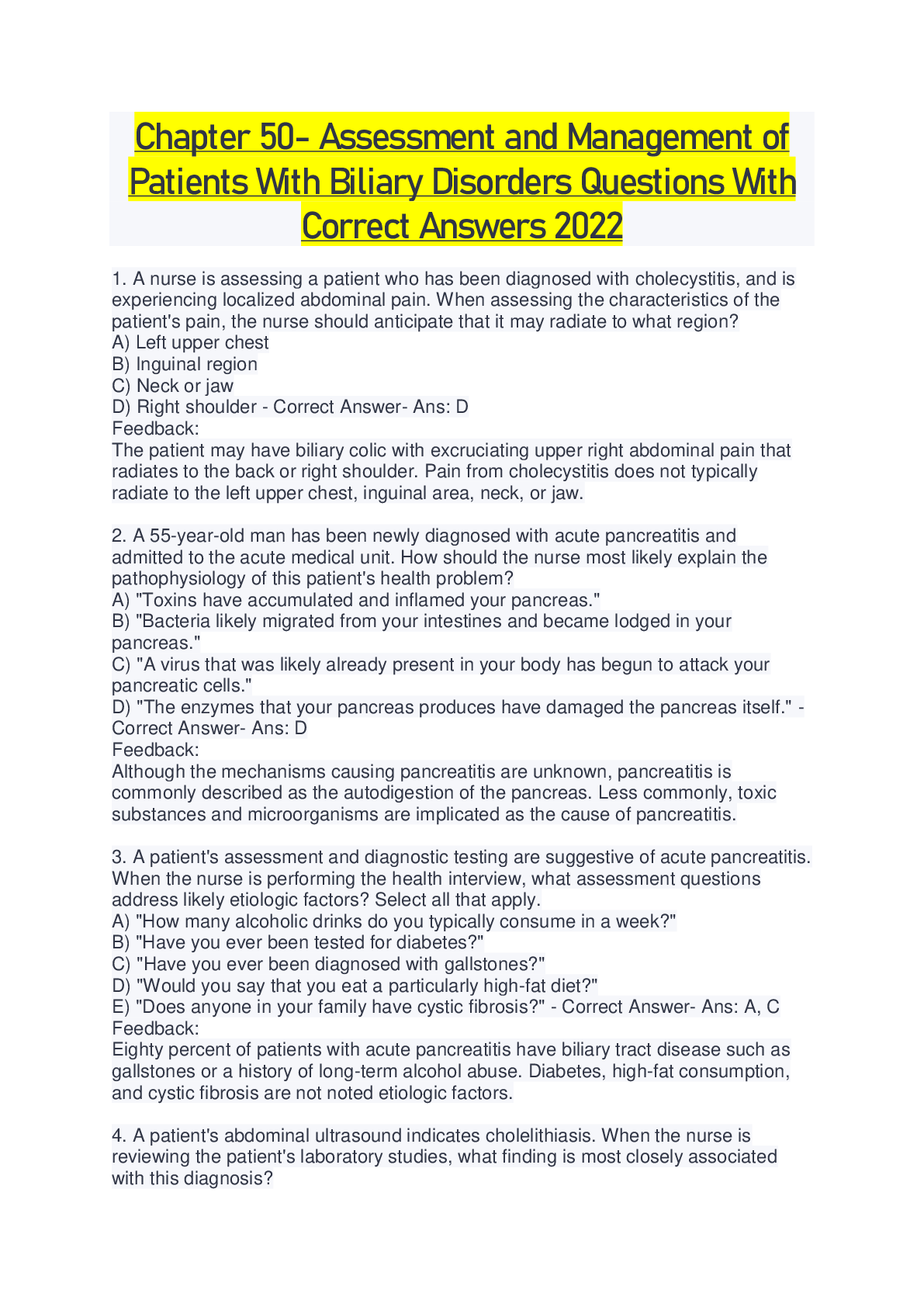


.png)
.png)
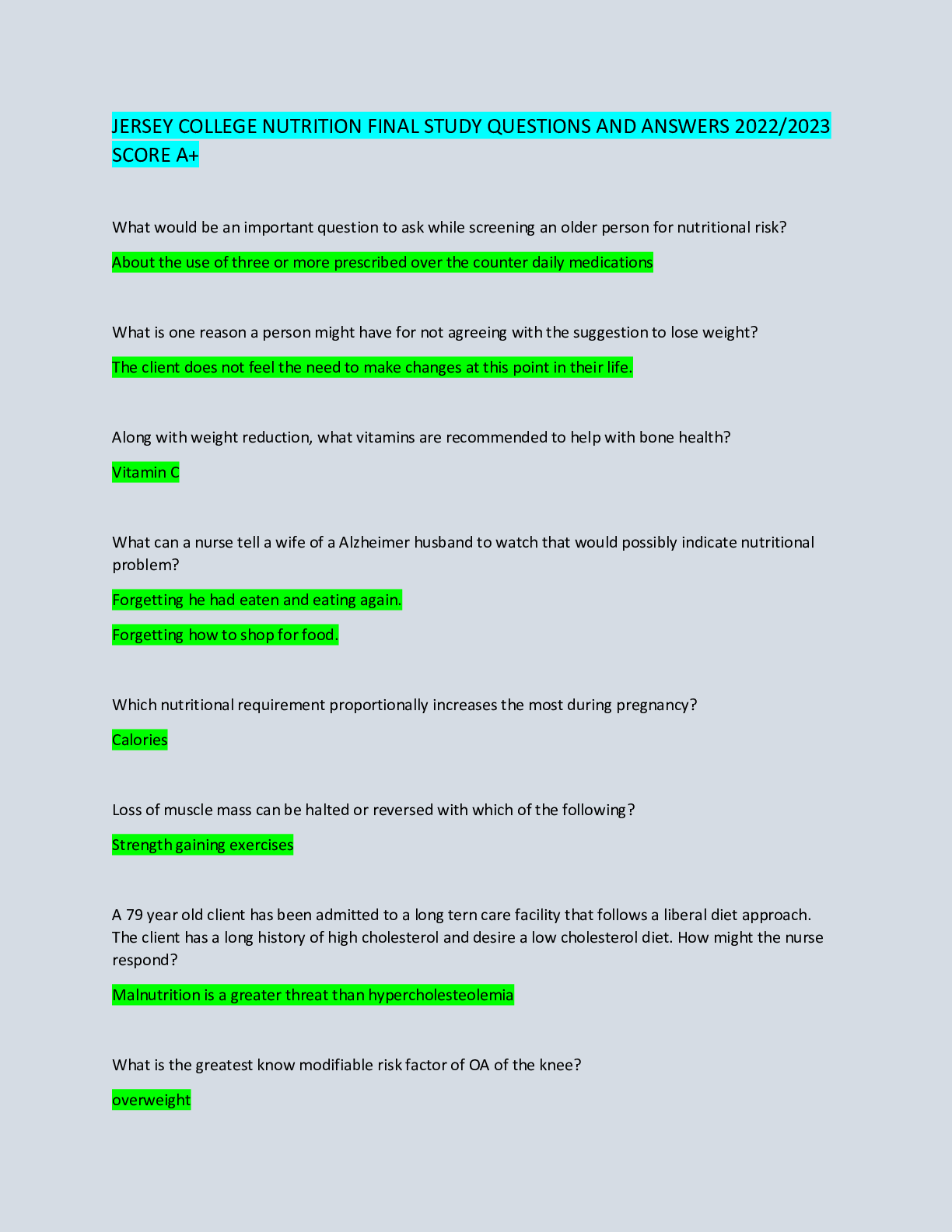


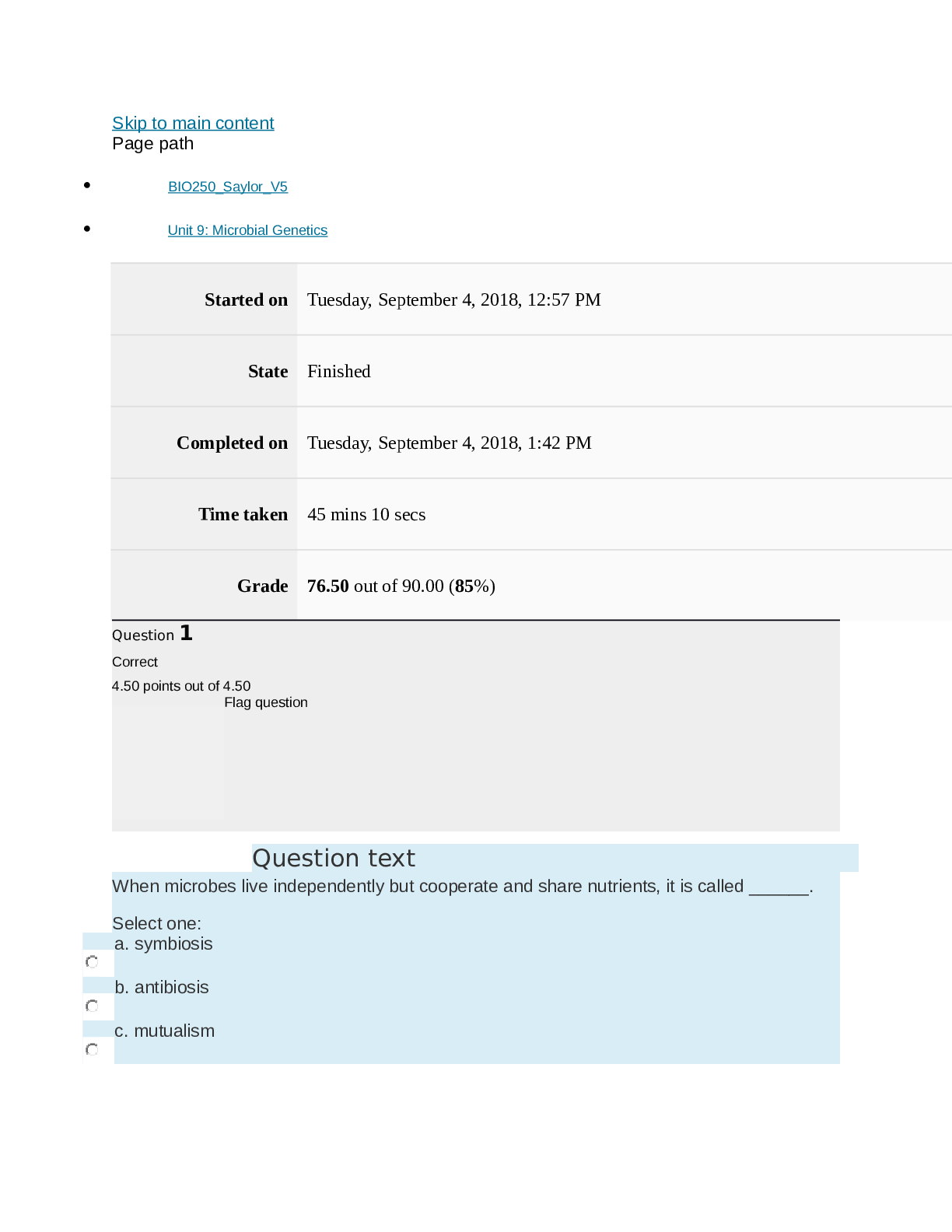

 (1).png)
